by Beth Pipkin
It is the rarest kind of awakening from sleep that allows you to gently glide from dreamland back to the physical world with eyes closed, body still and the rest of your senses doing all of the work to remind you of where you are. Once reality is all pieced together in your mind as you lay there, you smile because you remember and crawl out of bed to make sure that it is real. I was seven years old when I discovered paradise.
Asleep in my Umma and Uppa’s bed is where it all started, with my dark brown hair cut into a bob, like Mary Tyler Moore, and my skin dark from all-day-long adventures in the sun, in my favorite purple long t-shirt style nightgown. It had a cupid-like brown bear holding a bow and arrow with hearts in his eyes on the front (just what I asked for, from my aunt who dressed like Pat Benetar and had one just like it). The head of their bed was next to the window and I loved to keep it cracked slightly open to keep the sheets cool and also as a secret invitation for Pan’s shadow. The first thing I remember was the gentle summer breeze on my face, rolling in from the ocean that was less than 100 yards away. The sun was just beginning to light up the room. Birds were chirping and rustling in the trees. A float plane, at first far away, and then soon circling overhead, prepared to land. My Uppa’s footsteps traveled down the stairs, then through the gravel to his Suzuki four-wheeler. He kick started the engine, the engine rumbled and the gears shifted from neutral to reverse, then from reverse to drive, and took off up the hill through the village until I lost the sound of him heading to the dock to greet the mail plane. The noises of soft conversations and occasional outbursts of laughter from many familiar visiting voices scattered around the kitchen and living room brought my mind back to the house. My Umma’s gentle voice and footsteps around the kitchen as she gracefully hosted for her guests comforted me.
Spoons were lightly stirring and clinking in cups and butter knives spreading over pilot bread crackers and home-made fried bread. The smell of coffee and tea, boiled eggs, toast and jams, dried fish, leftover deer soup and seal meat were calling to me. I imagined myself as Peppy Le Pew and the scent trail reaching into the room like a finger, lifting me up and out of bed and floating me towards the kitchen table in a trance like state. Then I heard my Uppa’s bike park in front of the house, his footsteps back up the stairs. The front door opened and he began to unwrap his beloved newspaper and ruffle the pages as he sat down in his favorite chair. My house was right across the dirt road at the bottom of a hill and I could hear my mom and dad open our front door, walk down the steps and towards my Umma and Uppa’s house as they talked about their plans for the day and how heavy my little sister was getting; she was three and asleep in one of their arms. When they walked in, everyone greeted one another with, “good mornings” and, “how are you’s.” I heard my mom ask, “Where is baby? Still sleeping?” Then my dad answered, “She must be pooped out after catching all of those fish in the skiff yesterday. A couple of us are falling trees today by the dump, and I know she wanted to go with us but it’s too dangerous. Bring her up to us later so she doesn’t get mad that I left her behind and she can still see how we cut up those Hemlocks. She’ll love climbing all over the big plates.” Then all of the ladies started trying to feed him all at once before he left. Native women love to feed their hardworking men. I listened to his heavy footsteps down the stairs and huge stride through the gravel; no one’s footsteps are bigger than my dad’s, his one step is four of mine.
With my eyes still closed and just beginning to move around under the covers, my Umma called to me in her gentle and loving voice, “Baby, everyone wants to see you, come out to us. I made your favorite cereal.” I smiled and opened my eyes slowly while reaching my arms past my head towards the wall and stretched out my whole body, wiggling my fingers and toes as I let out a big yawn that wiped away the last bit of sleepiness until dusk. Hanging my feet over the edge of the bed, I slid down onto the cold floor and tip-toed to the doorway, peeking my head out. My grandparents, mom, great aunts, great uncles, auntie and uncle and older cousins were there visiting over breakfast before the busy day’s work began. Everyone started smiling and saying in high-pitched voices, “Good morning,” “Hi baby,” “Get over here and let me squeeze you.” I stumbled towards my Umma’s smiling face and fell into her arms acting shy and bratty-tired still. She hugged me and then lifted me into the chair next to her and showed me my bowl. It was full of the plump orange and red salmonberries and dark blueberries that I had picked the day before and had miraculously survived the journey home—without being eaten by me, spilled, squished, used as backup ammo in a squirt gun fight that had run out of water, or stolen by my cousins. It’s a treacherous gauntlet to get through when you are seven. She rewarded my determination by drizzling milk and sugar over the top of the heaping bowl of perfectly ripe and juicy berries. It was one of my favorite things in the world and I ate it in the blink of an eye, slurping up the rest of the sugary and color-stained milk left behind.
Then she said, knowing that I would be so excited, “I’m making the beebles you brought me yesterday too; they’re almost done.” My eyes lit up, my smile reached ear to ear and I let out a celebratory “Yes, thank you Umma!” She always knew how much it meant to me to be a provider too. I got down from my chair and went around the room to hug everyone and started getting dressed. I couldn’t let the men leave without me; I knew that’s where all the action was and I had to beat my boy cousins there too; not everyone can fit in the skiff. My Uppa and dad always taught me what I had to wear and carry with me every time I go out to hunt and gather. I started my mental checklist as I got ready around the house: Boots-check, hat and gloves-check, two layers of pants-check; t-shirt, hoodie and jacket-check, fanny pack-check; Swiss army knife, compass, fire starter keychain, granola bar, cracker with cheese spread packet, fruit gummies and kazoo to go in my fanny pack-check. With all of this ready I walked out of the bedroom to the pantry and grabbed two bottles out of my last Kool-Aid Burst six pack (grape flavor) and it was then that my mom said half chuckling, “And just where do you think you’re going?”
I replied with my best poker face, “To get more beebles and humpy’s with Uppa.” He lowered the paper he was reading to look at me and broke his stoic pose for a moment to let out a grin of approval then looked over at my mom, now with his best poker face and said, “That’s right babe, we’ll be leaving soon,” quickly lifting the paper to his face to conceal his smile. I let out a huge smile and so did the rest of the ladies in the room and then quickly ran out the backdoor to grab my fishing pole, net and BB gun in my hiding place under the house.
There is nothing like the feeling of being included to go out on the boat with your favorite people to do your favorite things. Each person has their own preparation routine, everyone knows when to be there and their place in the ranks, no one waits for the late risers and you never get asked twice if you want to go. For every stage of the outing—loading the boat, untying, pushing off, where to sit, out on the water, and getting ready to land on the beach—there are few words spoken, but communication is happening the whole time. It is the kind of place that you watch and learn, and only the ones who have learned and can follow orders without needing to be told in words are invited again by the Elders. I loved this way of life, making it my mission to show them that I understood and respected the silent and stern way of working men and that I was eager to earn my spot on the boat. This was the way of Aleut men and our world.
All bundled up, sitting in the bow of the open skiff, my uncles sitting on the bench behind me and my Uppa running the Evinrude outboard motor on full step from the stern, I basked in the salty air and sunlight, like a puppy in her first experience sticking her head out of the car window, as we cut through the flat calm water on our way across the small bay to the creek. I always liked nearing the beach and looking over the side of the boat to see the water change from dark green of the deep sea, to the sea-glass green of shallow water. Suddenly the world beneath us was visible; seaweed and seagrass swaying in the current, all different shaped and sized reefs and rocks, starfish, clam shells, sea cucumber, the occasional seal, sea otters, and schools of salmon swimming by and then feeling the bottom of the boat lightly bump up against the shore. We all hopped out and formed an assembly line from the skiff to the beach to unload our gear; buckets, nets, rifles, packed lunches and drinking water. My uncle tied the skiff line around a large rock, higher than the tide would reach while we were away. We walked to the section of the creek that had the most fish packed in.
All of them had their rifles around their shoulders as they dipped their nets in, catching five to ten fish at a time, and I had my little one fish wonder, trout-sized, silver with green mesh. I was working my hardest to catch all the females for eggs. Beebles are a favorite Alutiiq delicacy because they can only be harvested once a year. The males had big hook noses with large humps on their backs that stuck out of the water, I left those for my uncles. When salmon are spawning the eggs no longer have a sack holding them together. So when you catch the females you place the lower half of their body in the five-gallon bucket, then hold them still with one hand by pinching down on the back of their head with your fingers near their gills and use your other hand to squeeze from the top of their belly down towards their tail repeatedly. The bright orange eggs shoot out like bullets from a fully automatic machine gun into the bucket until there is nothing left and then we release the female back into the water. We stayed until we filled two five-gallon buckets full of beebles and caught enough humpies to give out to families who couldn’t harvest to make humpy soup for dinner – another seasonal delicacy of the Elders.
Once we got back, now late afternoon, we loaded everything onto the four wheelers and drove through the village’s upper row of houses. The rest of my cousins were now playing outside in their yards; as we passed by we gave each other that look, like “meet you down there in a few.” I could smell my mom’s cooking coming from the windows of the community building, where she worked as the head cook for the seasonal construction crews. As we took the last left turn towards my Umma and Uppa’s house at the bottom of the hill, I could hear the sound of chainsaws and axes in the forest up ahead. I knew it was my dad clearing trees to make more room for the road to the dump and water tower. We parked in the yard and I jumped off and instinctively ran to the steambath to tell my Umma all about our trip. She was always in the steambath around this time. With dinner simmering on the stove, she would have already hooked up the hose to the kitchen sink that runs out to the steambath and fills the tall metal bins with water. She was chopping kindling, setting up her toiletries and building a fire. This way it was perfectly timed to be hot enough to wash off the long day’s work right after eating. She always greeted my stories of new discoveries with enthusiasm even though she had already lived a lifetime of days like this. As I talked, she would point to things around the steambath and I would hand them to her to work on, while she would say, “Oh yeah? Oh really, wow, mhmm.” Then I kissed her as she squeezed me and I ran off to the secret meeting place in the trees, where my cousins were all waiting for me.
The rest of the day consisted of typical lost boy activities, like picking and eating berries as we marched single file through the forest in search of bird eggs made of gold and the mermaid at the end of the rainbow; sitting on the moss-covered ground in a circle making fort and raft building plans; collecting materials from around the village to enhance already-started forts and rafts that we had scattered around the meadows, forest ,and beaches; fishing; hunting birds and ermine with slingshots and bb guns; climbing trees and swinging from one branch to the other, pretending we were Tarzan. On one of our adventures at the beach closest to my Umma and Uppa’s house, we discovered crystal in a huge boulder that sat in the middle of the beach that could only be reached during low tide. We would sneak tools from our houses down to the beach: hammers, screwdrivers, chisels, anything that was long enough to reach what we believed were diamonds. We would sit there chipping away at this rock, careful not to shatter the long shards that lay below it, for hours it seemed. It felt like we were the Seven Dwarves in their diamond mine and we would all whistle while we worked. I could hear my Umma’s voice calling me home to jump in the steambath now to wash with all the ladies, eat dinner and get ready for bed. I thought life as I knew it would be this way forever. So I couldn’t wait to go to sleep so that I could do it all again tomorrow. How could I know that my life was about to change forever?
[divider]
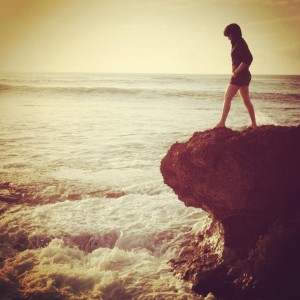 Beth is a whistling nomad who grew up wild on the islands that are scattered along the coastline of Southcentral Alaska; commercial fishing, hunting and gathering from land and sea. She cherishes storytelling with her Elders and exploring the world with her little tribe (fiancé, siblings, cousins, godson, nephews and westie pup). She is fascinated with all things outdoor survival, emergency preparedness, nomadic dwellings and weapons, tools and self-defense training. You can often find her daydreaming, playing ball, creating or immersed in some type of fantasy/adventure/sci-fi world.
Beth is a whistling nomad who grew up wild on the islands that are scattered along the coastline of Southcentral Alaska; commercial fishing, hunting and gathering from land and sea. She cherishes storytelling with her Elders and exploring the world with her little tribe (fiancé, siblings, cousins, godson, nephews and westie pup). She is fascinated with all things outdoor survival, emergency preparedness, nomadic dwellings and weapons, tools and self-defense training. You can often find her daydreaming, playing ball, creating or immersed in some type of fantasy/adventure/sci-fi world.
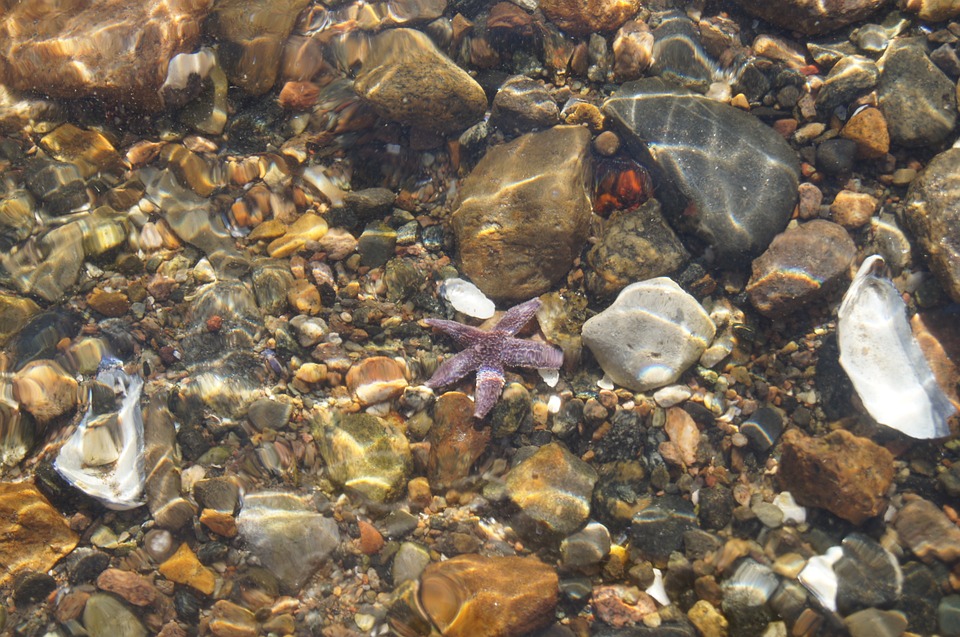

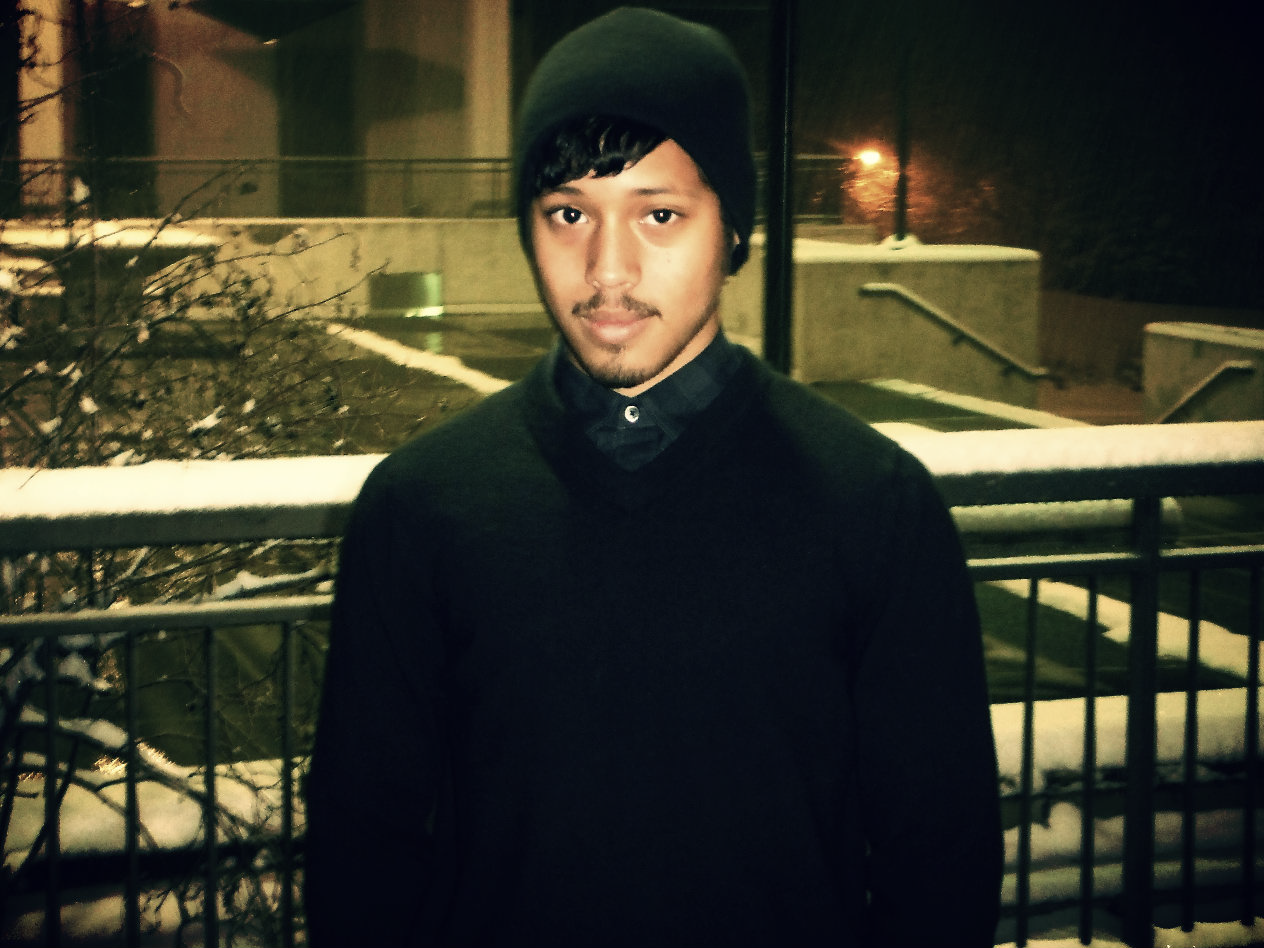
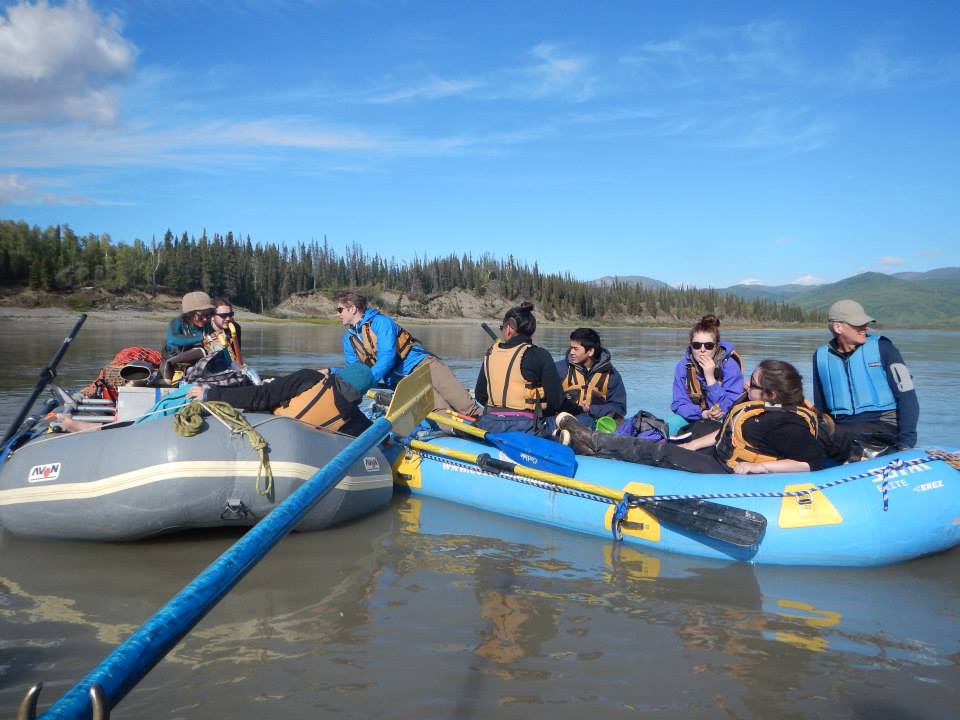
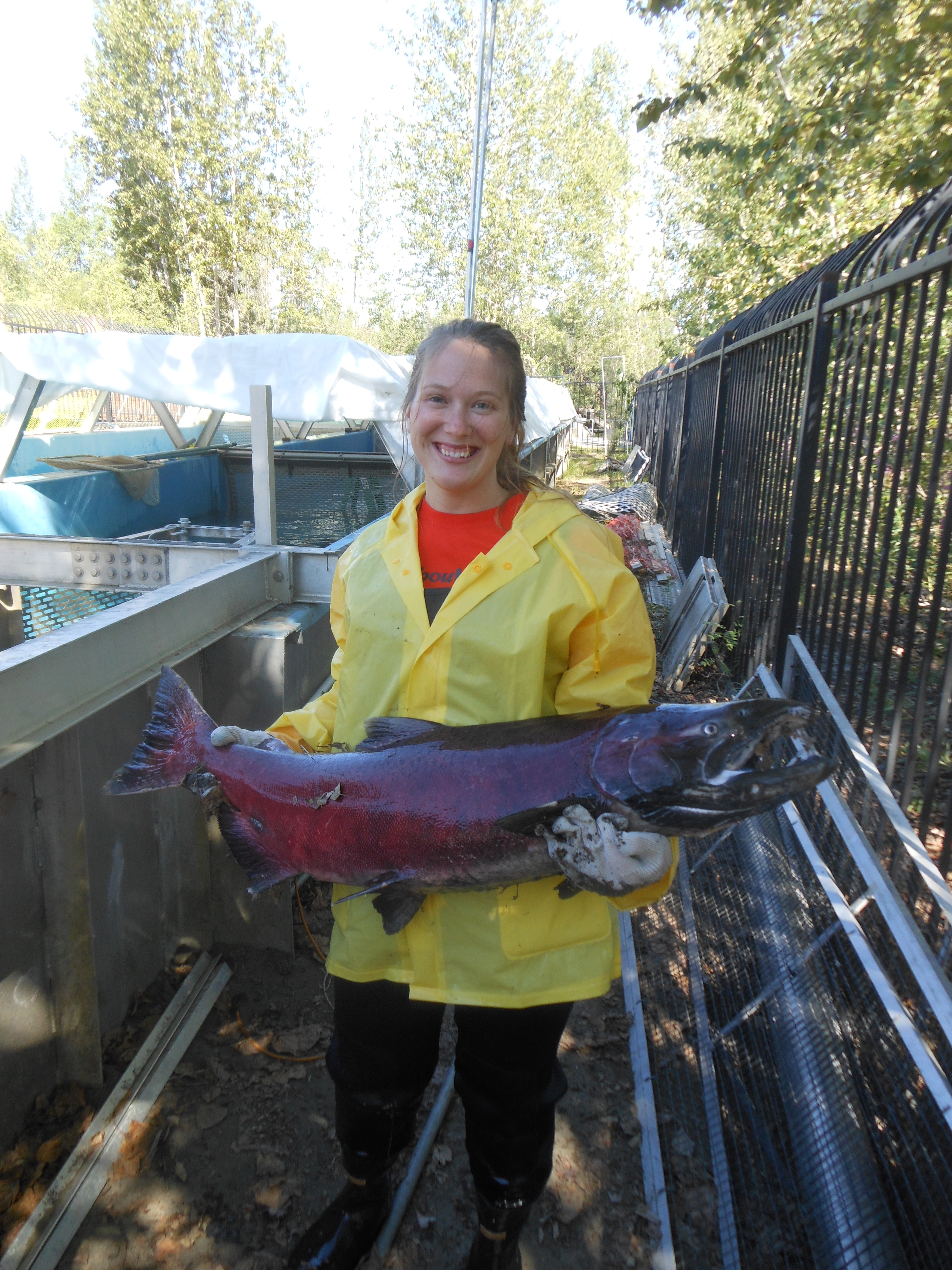
5 Comments
Elin
Another great essay Beth. Your childhood makes for a fascinating read and I can’t wait to read more. The way you write is very engaging, yet somehow soothing. It transports the reader to the time and place and keeps them there to the final sentence. I enjoy how you incorporated Disney characters and terms. It adds to the theme of wonderment. I also really like the cliff-hanger ending.
TeShawn Anderson-Johnson
I Love Love Love, how descriptive your piece is. The overall setting and connection that you had with your family it was as if i could visualize every sentence that was illustrated. Your style of writing aside from being descriptive, was smooth, there was no confusion, it was like when I started reading I couldn’t stop. That is how intriguing and entertaining this story was.
Elijah
You really bring the written word alive with your creativity. Reading your work is so entertaining and immersive. You know how to target a readers’ senses with your word choice and after reading your story as well as a few others, I’m regretting not coming here to read more often.
MaryLou Mae Anaruk
Reading about your childhood was so amazing, i could really picture everything that you were saying. I did not want to stop reading. Reading about your family connection was just so inspiring. This was an amazing piece of your writing.
MaryLou Mae Anaruk
I love how when i was reading i could see the connection you had with your family. This was truly something that i loved to read. When reading i could really see some of the things you were talking about and that was just truly inspiring.